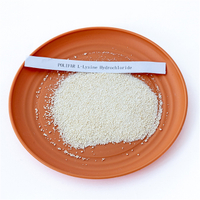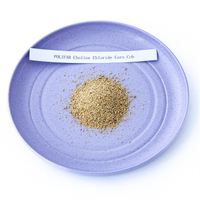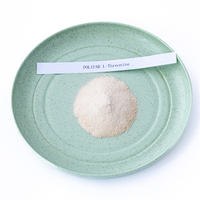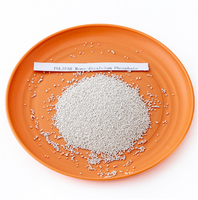Views: 0 Author: Site Editor Publish Time: 2022-12-26 Origin: Site








Potassium sorbate, also known as potassium 2,4-hexadienoate, is the potassium salt of sorbic acid, and its molecular formula is C6H7O2K. White to light yellow scale-like crystals, crystal particles or crystal powder, odorless or slightly odorous, easy to absorb moisture when exposed to air for a long time, oxidative decomposition and discoloration. Soluble in water, propylene glycol and ethanol. Often used as a preservative, it destroys many enzyme systems by combining with the sulfhydryl groups of microbial enzyme systems. Its toxicity is much lower than other preservatives, and it is widely used. Potassium sorbate can give full play to its antiseptic effect in acidic medium, but has little antiseptic effect under neutral conditions.
There are two main methods for the synthesis of sorbic acid. One is the reaction between crotonaldehyde and acetone under specific conditions. The second is to use crotonaldehyde and ketene as raw materials and react under specific process conditions, which is the most commonly used synthesis method. Crotonaldehyde mainly comes from the condensation of acetaldehyde, while ketene is produced by cracking acetic acid, and further reacts sorbic acid with potassium hydroxide to produce potassium sorbate. Its reaction formula is as follows:
CH3CH=CHCH=CHCOOH+KOH→CH3CH=CHCH=CHCOOK+H2O

As the least toxic food preservative, potassium sorbate is widely used in food and feed processing industries, as well as in cosmetics, cigarettes, resins, spices and rubber industries. It is most widely used in food preservation and feed.
2.1 Animal feed industry
Both the United States and the European Union use potassium sorbate as a legal feed additive for animal feed. Potassium sorbate can inhibit the growth of mold in the feed, especially the formation of aflatoxin has a very significant effect. Therefore, the addition of potassium sorbate can effectively prevent the spoilage of feed, and it can resist the growth of microorganisms in the intestine of animals. In addition, the neutral taste of potassium sorbate is suitable for use in feed, because animals are more sensitive to changes in the taste of food than humans. In addition, as an unsaturated fatty acid, potassium sorbate can be easily digested as a feed ingredient without any adverse effects on animals. Feed is prone to spoilage during storage, transportation and sales, so potassium sorbate has a huge application market in the feed industry.
2.2 Food containers and packaging materials
The purpose of food packaging is to protect food. At present, there are materials in food packaging that use active substances to improve the function of materials. In addition to extending the shelf life of packaged food, they can also maintain the nutrition and safety of food. In 2009, China promulgated and implemented the GB 9685-2008 hygienic standard, which clearly stipulates the allowable usage of potassium sorbate in food containers and packaging materials and the maximum residue limit of potassium sorbate. In terms of plastic production, it can be used in an appropriate amount according to production needs. For rubber, the amount used is 0.1%, and for paper, it can be used according to production needs. At the same time, there is no requirement for the residual amount of sorbic acid.
To sum up, potassium sorbate can be added directly, impregnated, sprayed or sprayed with dry powder when used. At the same time, there are many flexible ways to deal with packaging materials. As far as the development trend is concerned, the properties of potassium sorbate are equivalent to natural products, and the application range and usage will gradually expand.
2.3 Food preservatives
Potassium sorbate is widely used as a food preservative. China approved its use and promulgated standards in 1982, stipulating that the allowable concentration in noodle products, pickles, canned food, dried fruits, dairy products and condiments is 0.02% to 0.1%. Adding 1% potassium sorbate to meat products can significantly inhibit the production of Clostridium botulinum toxin. At the same time, sorbic acid is widely used in low-alcohol wine, such as wine, beer and wine, and has an ideal antiseptic effect. The Food and Agriculture Organization (FAO) clearly stipulates that the maximum dosage of potassium sorbate is 0.28/kg. All countries refer to this standard and formulate strict use standards according to their own conditions. Using potassium sorbate to treat packaging materials can extend the shelf life of foods such as bread and dried fruits. In view of the limitations of the application of a single food additive and the limitations of physical properties. At present, domestic and foreign are vigorously researching and developing compound food additives, so as to exert synergistic effects to achieve the best results.
If you are interested in other preservatives such as potassium sorbate or sodium benzoate, please consult Polifar, we are a professional supplier of food additives.






